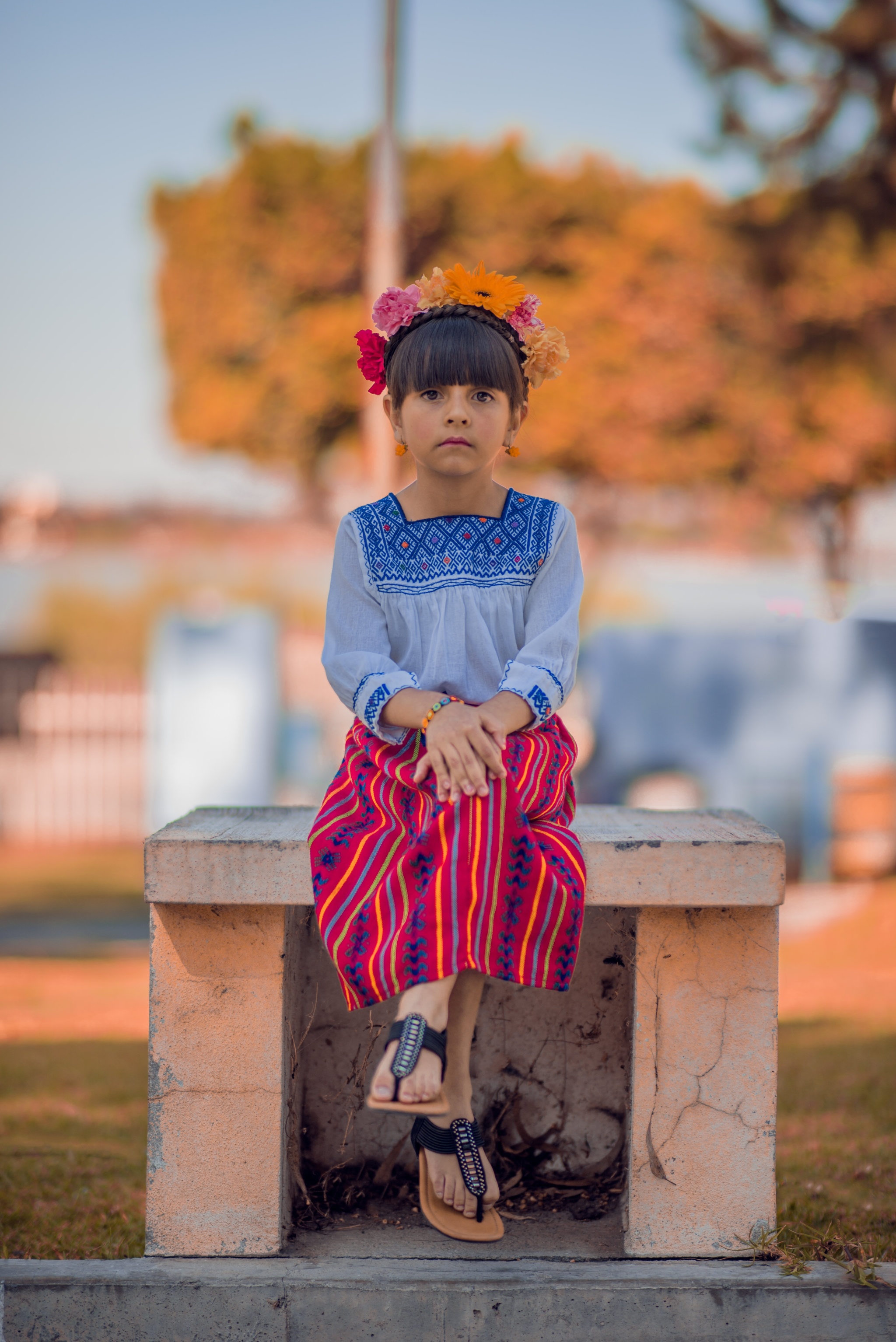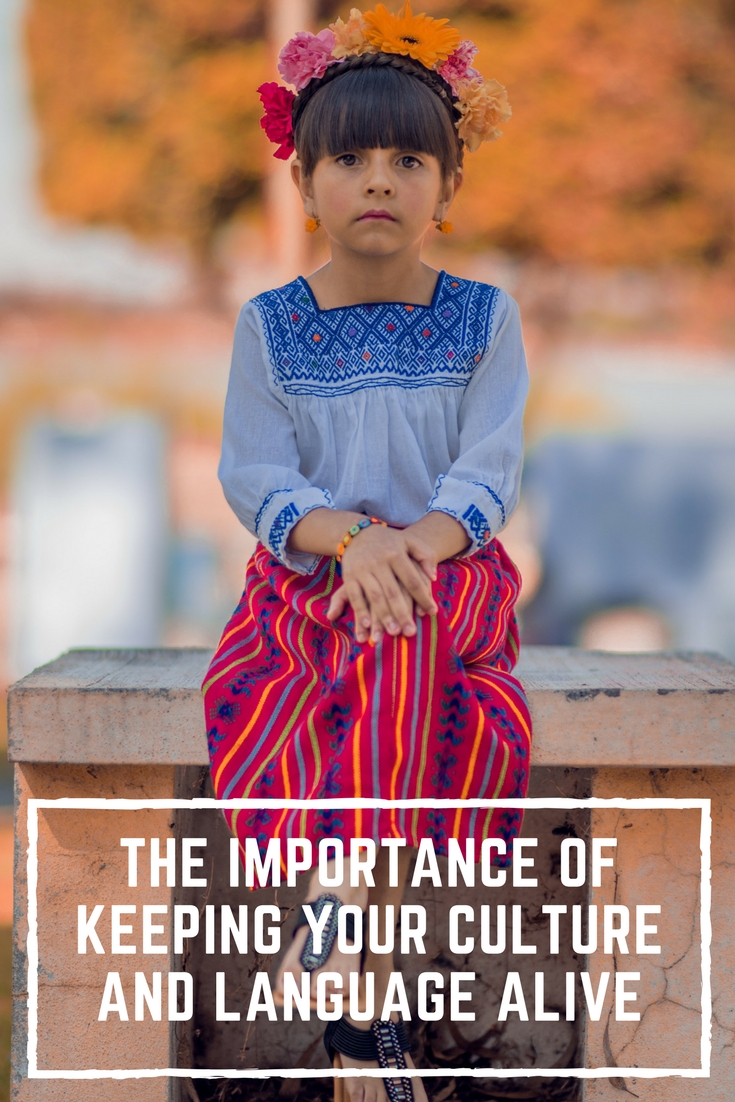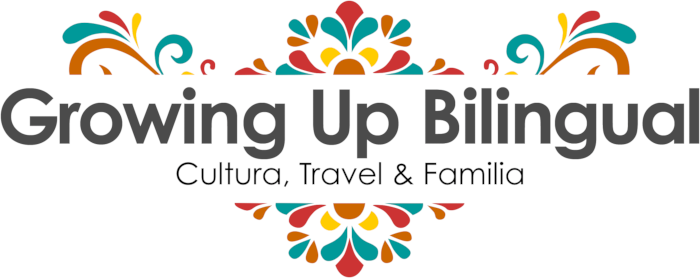If you’ve been curious about the advantages of raising bilingual children, you’re in the right place. In this article, I’ll share why raising kids with two languages is such a gift, what science says about the bilingual brain, and — most importantly — practical tips you can use at home to make bilingualism fun and natural.

As a bilingual mom, I know it’s not always easy. There were times when my kids refused to answer me in Spanish or rolled their eyes when I insisted on Spanish bedtime stories. But staying consistent has paid off in ways I never imagined: from conversations with their grandparents to confidence at school and even better job prospects down the line.
The truth is, kids will pick up English easily when they’re immersed in it at school and with friends. What really matters is the effort you make to keep your home language alive. That’s where the deeper benefits — identity, family bonds, empathy, and opportunity — take root.
Why Bilingualism Matters More Than Ever
The United States is becoming more multilingual every year. According to Pew Research, more than 67 million people speak a language other than English at home. Spanish is the most common, but families also speak Chinese, Tagalog, Arabic, and hundreds more.
For our kids, bilingualism isn’t just a “bonus skill.” It means:
- Confidence and identity. Children who grow up hearing and using their home language know where they come from — and that their roots are something to be proud of.
- Stronger family bonds. They can connect with grandparents and extended family in meaningful ways.
- Respect for diversity. Bilingual kids learn early that different cultures and languages are valuable.
- More opportunities. Whether it’s studying abroad, traveling, or landing a job, bilinguals have an edge.
The Many Advantages of Raising Bilingual Children
Identity and Self-Esteem
Kids who grow up bilingual develop a stronger sense of self. They know they belong to more than one world — and that’s empowering.
In our house, reading stories in Spanish helped my kids feel proud of their roots. Books that reflected their culture showed them that their language mattered. (If you’re looking for inspiration, check out my recommendations for the best Spanish books for children that make story time both fun and meaningful.)
Family Connections
One of my proudest parenting moments was when my daughter sat with her grandmother and listened to her childhood stories — all in Spanish. Those conversations would’ve been impossible without bilingualism.
Keeping your home language alive lets your kids connect deeply with family members who don’t speak English. That bond is priceless.
Respect for Diversity
Bilingual kids quickly learn that differences are not only normal — they’re something to celebrate. At home, we celebrate holidays from both cultures, cook traditional meals, and share music from around the world. These small things build a worldview that is open, curious, and empathetic.
When kids lose motivation, small shifts help. Sometimes I’ll find a fun activity or resource for keeping language learners motivated, which brings excitement back into the process.
Milestones Worth Celebrating
Families, schools, and cultural organizations sometimes use symbolic tokens like challenge coins to celebrate bilingual milestones, honor participation in heritage festivals, or recognize community service. Because these coins represent belonging, achievement, and shared identity, they can become keepsakes that spark conversations across generations. For a deeper look at what they are, what they represent, and how different groups use them to build connection, learn more about challenge coins to explore their history and purpose.
Future Opportunities
Being bilingual pays off long after childhood. From scholarships to job interviews, bilingual candidates stand out. Employers value employees who can work across cultures, and studies show bilingual professionals often earn more over a lifetime.
For my kids, it’s also been about joy: traveling abroad and making friends they never could have without Spanish. Those moments are reminders that bilingualism is a lifelong gift.
What Science Says About the Bilingual Brain
Research shows that bilingualism shapes how the brain works — and the effects last a lifetime.
- Sharper focus. Bilinguals can filter distractions more effectively.
- Better multitasking. Switching between languages trains the brain to handle multiple tasks.
- Problem-solving and creativity. Bilinguals often find new solutions and think outside the box.
- Brain health. Bilingualism can delay dementia and Alzheimer’s by years.
Dr. Ellen Bialystok of the University of York found that children who learn a second language before age five actually develop denser grey matter in brain regions tied to communication.
And here’s something every parent should know: bilingualism does not cause speech delays. Specialists now emphasize that bilingualism is better even if your child has a speech delay, and often supports language growth in the long run.
Practical Tips for Raising Bilingual Kids
Consistency matters, but so does creativity. Here are strategies that worked in our home (and for many other parents I’ve talked to):
Make Language Part of Everyday Life
Use your home language naturally — at meals, bedtime, or while running errands. When my son answered me in English, I’d simply respond back in Spanish:
“¿Quieres agua?” — “Yes.” — “Perfecto, aquí tienes tu agua.”
No pressure, just gentle modeling.
Use Books, Apps, and Media
Kids love stories, songs, and screen time. Instead of fighting it, harness it. Build a library of apps for learning Spanish or stream shows and audiobooks in your home language.
Reinforce Through Play
Play is the secret weapon. Board games, role-play, and even silly songs make language learning fun. On weekends, we sometimes switch all games to Spanish mode. You can also use playtime to reinforce Spanish in ways that feel natural and engaging.
Build a Community Around Language
Kids thrive when they see peers using the same language. Try bilingual playgroups, library story times, or cultural events. My daughter once met another Spanish-speaking girl at a heritage festival, and they spent the whole afternoon chatting, it boosted her confidence more than any lesson could.
Partner With Teachers
Let your child’s teachers know about your bilingual goals. Many teachers encourage students to share their culture in class. My son once did a presentation about Día de los Muertos, and it made him proud to bring Spanish into school.
Be Smart About Digital Resources
The internet is full of tools, but quality matters. If you’re exploring online programs, take a moment to learn what makes good language learning on the internet so your child’s time is well spent.
Common Challenges Parents Face (and How to Handle Them)
Even with the best strategies, every family hits roadblocks. Here’s what to expect, and what’s helped in our home.
When Kids Answer in English
It’s frustrating, I know. My kids went through this stage, too.
What helped us:
- Keep speaking Spanish without turning it into a battle.
- Save Spanish for low-pressure times like bedtime stories or cooking.
- Make it “special” — in our family, grandparents only speak Spanish, so my kids had no choice if they wanted to connect.
When School Pressure Takes Over
After a full day in English, kids sometimes resist more at home.
What worked for us:
- Make it fun: we have “Spanish Saturday” for cartoons and pancakes.
- Track progress: we keep a notebook of funny or sweet phrases they say in Spanish.
- Build peer connections: bilingual library story time showed my kids that Spanish wasn’t just “our thing.”
When Motivation Fades
My daughter hit this stage in middle school when English became her default with friends.
Strategies that worked:
- Tie Spanish to passions — for her, that meant animal documentaries.
- Switch formats — instead of lessons, we played Spanish music or board games.
- Invite friends — dinners with other bilingual families reminded her she wasn’t alone.
If you need more ideas, there are excellent strategies on how to raise bilingual children in a non-native language that can refresh your routine and spark new energy.
Keeping Culture and Language Alive for All Languages
I share my story as a Latina mom, but the truth is, every heritage language needs intentional care to survive — especially when it isn’t widely spoken around you. The good news is, the same everyday strategies that help Spanish thrive can also strengthen other languages.
Some families lean on weekly cultural rituals, like cooking together, to teach language through experience. A Guatemalan family might make pepian while naming every ingredient out loud. A Korean family could do the same with kimchi or tteokguk.
Others use media as a bridge when conversation feels hard. A teen learning Haitian Creole might watch shows or YouTubers who speak it authentically. A child practicing Arabic could listen to playlists with bilingual lyrics and follow along.
For families who want structured guidance but from home, tutoring can fill in the missing environment piece. A kid learning Korean might work with an online Korean tutor. A kid learning Mandarin might do short virtual lessons focused on speaking, not worksheets. A kid learning K’iche’ might meet with a community teacher online or in small neighborhood circles.
And some families build micro-communities when they feel alone in their language journey. In Southwest Florida, I’ve met parents keeping Brazilian Portuguese alive by organizing playdates where only Portuguese is spoken for one hour. The same idea works for any language, the key is consistency, connection, and making it feel real.
No matter the language, culture stays alive when kids live it, not just study it; through food, music, conversations, media, community, and routine support that fits your family’s life.
A Note on Second Language Acquisition
Every child’s path is unique. Some blend languages, others go through “silent periods,” and many prefer one language at different stages. This is normal. In the end, the benefits and challenges in second language acquisition balance out, and your child will come away with skills that last a lifetime.
Raising Bilingual Kids Is Worth It
The advantages of raising bilingual children go far beyond speaking two languages. You’re giving your kids confidence, identity, empathy, and opportunities that will shape their lives.
Some days it feels like a struggle — I’ve been there. But every bedtime song, every Spanish cartoon, every story with grandparents adds up.
I’ve seen how bilingualism has made my children more curious, compassionate, and connected. It’s not always easy, but it’s worth it. And I promise: the gift you’re giving your children will last a lifetime.
What scientific studies tell us

- Rappeling in Guatemala at Finca El Barretal - January 30, 2026
- How to Choose the Best Vacation Rental for Your Family Trip (Expert Tips for Stress-Free Planning) - January 6, 2026
- Cranberry Brie Cake Grazing Board (An Elegant Holiday Cheese Centerpiece) - December 19, 2025



Hi the, very true! I am also raising bi- and even multicultural children! 😉 Jenny
It’s important that our children can speak english because in this world learning the dominant language provides more success and more opportunities. I believe that as a migrant i must tell you that landing in your new culture means you are part of that country.
I found this article very intersting and helpful. Two other friends and I are trying to get more of our native culture into our schools and found this article very helpful on ways that bringing culture to the school would benefit the children. This was a great article and helped us a lot with what we needed to have the schools aware of and why it would help the children. Thank you!
what must be done to ensure that local,indigeneous language do not become extinct